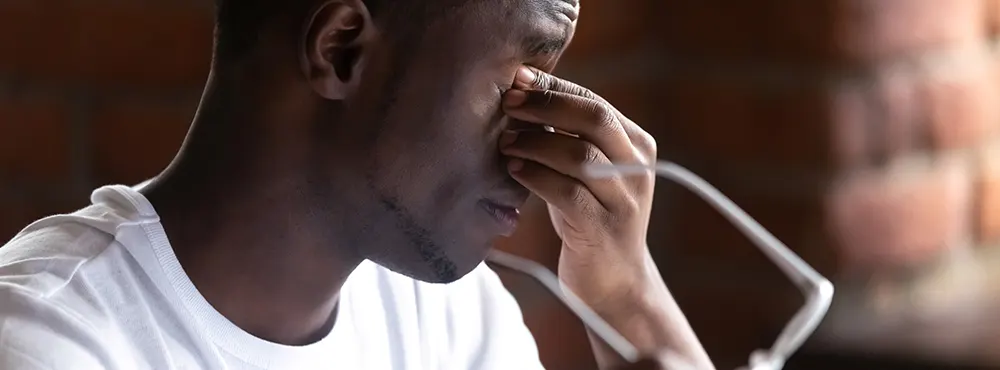How to have a good night’s sleep?
We need at least 5 hours of sleep per night for our eyes to fully recover from the day and 7-9 hours would be ideal. If you have trouble sleeping, here are our top tips on how to get more sleep each night and avoid sleep deprivation:
- Get as much daylight/sun exposure during the day as you can - this will increase the quality of your sleep in the evening, just ensure you wear UV protective eyewear.
- Limit your exposure to light (and screens) at least 2 hours before bed - the blue light from your screens can stop you from sleeping by tricking your body into thinking it’s still daytime and you should be awake
- Wear blue light glasses - these help filter out some of the blue light that emits from digital devices such as your mobile phone or laptop and can help to provide you with a better quality of sleep
- No matter what time you go to bed, wake up at the same time every day (as much as possible) - having a consistent bedtime will help you to sleep better because your body will start to get tired on cue
- Avoid alcohol at night - alcohol consumption may initially help you to fall asleep but you’ll end up having very light and poor-quality sleep
- Consider wearing an eye mask to sleep - especially in the summer months when it gets very light in the mornings, an eye mask can help block out the light. If eye masks aren’t your thing you could also try blackout blinds
- Exercise regularly - this can help you to sleep much better; however, avoid exercise 3 hours before you go to sleep as this can cause problems unwinding
- Avoid eating within 3 hours of going to bed - eating just before bed can make it hard for you to stay asleep as digesting your food takes a lot of energy
Disclaimer: The advice in this article is for informational purposes only and does not replace medical care or an in-person check-up. Please check with an eyecare professional before purchasing any products or remedies. For information on our article review process, please refer to our Editorial Policy.

 Offers
Offers Account
Account
 Favorite
Favorite
 Basket
Basket

 OFFERS
OFFERS


















